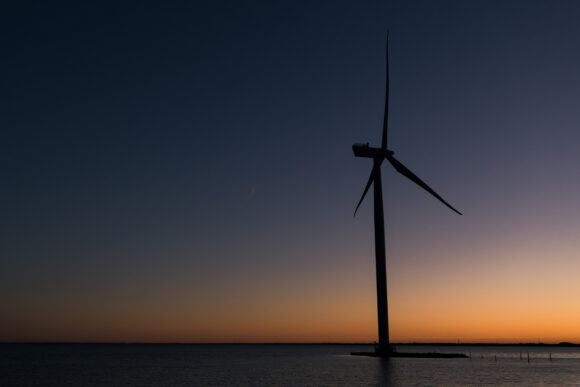European Union nations will discuss potential changes to the role of imported carbon credits in the next decade in a drive for a rapid deal on the bloc’s landmark 2040 climate goal.
Denmark, which holds the EU’s rotating presidency, signaled openness to debating the share of international carbon credits and the date from which they would be allowed in the bloc as part of the proposed target to cut net emissions by 90% from 1990 levels, according to a document seen by Bloomberg News.
The goal is one of the most contentious issues on the EU agenda, with members divided on the pace of pollution cuts and how to protect their economies. A larger role for cheaper imported credits could potentially alleviate concerns among some states about the costs of the green drive, smoothing the way to the adoption of the 2040 target, the bloc’s biggest weapon in the effort to limit the damaging effects of climate change.
EU Council member states are currently considering amendments to a draft law tabled by the European Commission, which wants to allow the credits from 2036 but limit them to 3% of the bloc’s baseline net emissions in 1990. Poland last week called for boosting the limit to 10% and bringing the entry date forward to 2031.
Denmark is seeking to agree a common stance on the 2040 goal at an extraordinary meeting of environment ministers scheduled to take place in Brussels on Sept. 18. Any deal, which would pave the way for negotiations with the European Parliament on the final shape of the law, needs a qualified majority of votes.
The Danish presidency said it has been “working intensely after meeting with all 26 member states bilaterally, and has circulated a text with substantial changes in order to facilitate a compromise” at the meeting next week.
Cap-and-Trade Program
The EU currently doesn’t allow the less expensive imported carbon credits generated by projects beyond its borders, after banning them fully from 2021 amid concerns over their environmental integrity. In the post-2030 framework, the commission wants to permit their use only outside its own emissions cap-and-trade program, or the EU ETS — a stance that Denmark wants to uphold.
Investors are closely watching for signs on how the region will handle credits produced under the United Nations’ new carbon-trading mechanism, which was mandated by the landmark Paris Agreement. While a group of countries including France, Italy and Poland are willing to elevate the issue to the bloc’s leaders’ meeting in October, diplomats do not rule out clinching an agreement or a partial deal on some elements of the proposal next week.
Photo: A wind turbine near the Avedore power station, operated by Orsted A/S, near Copenhagen, Denmark. Courtesy: Bloomberg
Topics Europe
Was this article valuable?
Here are more articles you may enjoy.



 Lemonade Books Q4 Net Loss of $21.7M as Customer Count Grows
Lemonade Books Q4 Net Loss of $21.7M as Customer Count Grows  AIG’s Zaffino: Outcomes From AI Use Went From ‘Aspirational’ to ‘Beyond Expectations’
AIG’s Zaffino: Outcomes From AI Use Went From ‘Aspirational’ to ‘Beyond Expectations’  Zurich Insurance Profit Beats Estimates as CEO Eyes Beazley
Zurich Insurance Profit Beats Estimates as CEO Eyes Beazley  Viewpoint: Runoff Specialists Have Evolved Into Key Strategic Partners for Insurers
Viewpoint: Runoff Specialists Have Evolved Into Key Strategic Partners for Insurers 

